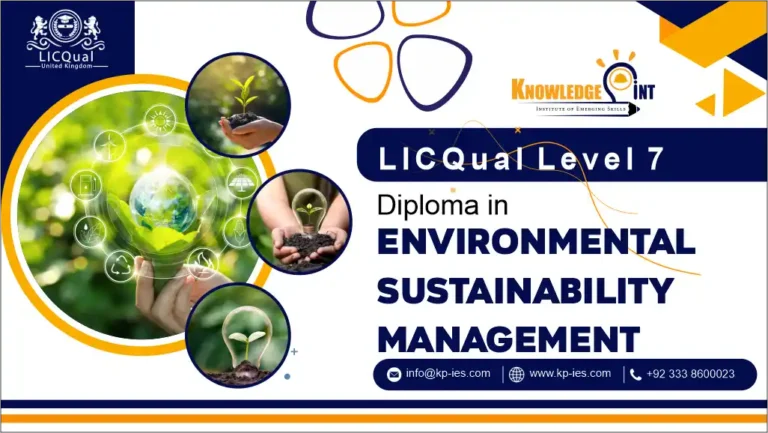In a rapidly evolving world driven by technological and scientific advancements, biotechnology remains at the forefront of innovation. The ICTQual Level 6 Diploma in Biotechnology Engineering offers a comprehensive and industry-relevant education designed to equip students with the expertise needed to thrive in this dynamic field.
Spanning three years and delivering 360 credits, this diploma blends theoretical knowledge with hands-on experience to prepare students for careers in biotechnology and related industries. From mastering bioprocess engineering principles to exploring genetic engineering applications, students will gain a holistic understanding of biotechnology engineering.
This program is ideal for individuals aspiring to advance their careers in sectors like pharmaceuticals, agriculture, environmental sciences, and healthcare or for those planning to pursue postgraduate studies in biotechnology.
At ICTQual, we prioritize academic excellence and industry relevance. Our Level 6 Diploma in Biotechnology Engineering is crafted to ensure that students not only gain knowledge but also develop the skills and confidence to lead in the biotechnology sector.
Course Overview
The ICTQual Level 6 Diploma in Biotechnology Engineering 360 Credits – Three Years consists of 36 mandatory units which are as follows.
Year 1: Foundations of Biotechnology Engineering
- Introduction to Biotechnology
- Principles of Molecular Biology
- Basics of Biochemistry
- Fundamentals of Microbiology
- Introduction to Genetics and Genomics
- Principles of Cell Biology
- Mathematics for Biotechnology
- Fundamentals of Biostatistics
- Introduction to Engineering in Biotechnology
- Analytical Techniques in Biotechnology
- Basics of Bioinformatics
- Environmental Science and Sustainability
Year 2: Intermediate Biotechnology Concepts
- Bioprocess Engineering and Design
- Applied Microbiology and Industrial Applications
- Recombinant DNA Technology
- Biomaterials and Nanotechnology
- Immunology and Vaccine Development
- Protein Engineering and Enzyme Technology
- Bioinformatics Tools and Applications
- Environmental Biotechnology and Waste Management
- Bioreactors and Fermentation Technology
- Biomedical Engineering Basics
- Advanced Biostatistics and Data Analysis
- Ethical and Regulatory Aspects of Biotechnology
Year 3: Advanced Topics and Specialization
- Genetic Engineering and Genomic Editing
- Advanced Bioprocess Engineering
- Biotechnology Research Methods
- Pharmaceutical Biotechnology and Drug Development
- Systems Biology and Computational Modeling
- Agricultural Biotechnology and GMOs
- Industrial Biotechnology and Bioeconomy
- Synthetic Biology Applications
- Advanced Environmental Biotechnology
- Innovation and Entrepreneurship in Biotechnology
- Biotechnology Project Management
- Final Year Research Project
Learning Outcomes for ICTQual Level 6 Diploma in Biotechnology Engineering (360 Credits – Three Years)
Year 1: Foundations of Biotechnology
- Introduction to Biotechnology Engineering
- Understand the fundamental principles and applications of biotechnology.
- Explore the history and impact of biotechnology across industries.
- Bioprocess Engineering Fundamentals
- Apply bioprocess principles to design and optimize biological systems.
- Analyze the role of fermentation and bioreactors in industrial applications.
- Cell Biology and Genetics
- Comprehend cellular structures, genetic functions, and molecular biology processes.
- Apply genetic principles to solve biological engineering challenges.
- Laboratory Techniques in Biotechnology
- Master essential laboratory methods such as PCR, chromatography, and spectrometry.
- Evaluate experimental data and maintain accurate lab records.
- Bioinformatics and Computational Biology
- Use computational tools for genetic sequence analysis and protein structure modeling.
- Solve biological problems using bioinformatics approaches.
Year 2: Advanced Biotechnology Concepts
- Genetic Engineering and Applications
- Implement genetic modification techniques in agriculture, medicine, and industry.
- Evaluate the ethical and environmental considerations of genetic engineering.
- Environmental Biotechnology
- Develop sustainable solutions for waste management and pollution control.
- Assess the role of biotechnology in environmental conservation.
- Industrial Biotechnology
- Optimize processes for biofuels, pharmaceuticals, and bioplastics production.
- Apply engineering principles to large-scale industrial operations.
- Ethics and Regulatory Compliance
- Navigate ethical dilemmas and regulatory frameworks in biotechnology.
- Ensure compliance with local and international standards.
Year 3: Professional Expertise and Research
- Emerging Technologies in Biotechnology
- Explore cutting-edge advancements such as CRISPR, synthetic biology, and nanobiotechnology.
- Assess the potential and challenges of emerging technologies in biotechnology applications.
- Bioengineering Systems
- Integrate biology and engineering principles to design innovative systems and devices.
- Develop prototypes for biotechnology applications.
- Project Management in Biotechnology
- Plan, execute, and manage biotechnology projects efficiently.
- Apply project management tools to ensure timely and effective outcomes.
- Capstone Project
- Conduct independent research addressing a real-world biotechnology challenge.
- Present findings through a comprehensive report and oral presentation.
The ICTQual Level 6 Diploma in Biotechnology Engineering 360 Credits – Three Years offers a range of benefits for students pursuing a career in the rapidly growing field of biotechnology. Below are the key advantages:
1. Comprehensive Skill Development
- Gain advanced theoretical knowledge and practical expertise in biotechnology, covering genetics, bioprocessing, bioinformatics, and environmental sustainability.
- Acquire hands-on experience with modern laboratory techniques, enhancing technical proficiency.
2. Industry-Relevant Curriculum
- Study a curriculum aligned with current industry needs, preparing you for roles in pharmaceuticals, agriculture, healthcare, and industrial biotechnology.
- Explore cutting-edge technologies like CRISPR, nanobiotechnology, and synthetic biology, ensuring readiness for future advancements.
3. Practical Application and Research
- Participate in laboratory sessions and real-world projects to apply learned concepts effectively.
- Undertake a capstone project to solve real-world biotechnology challenges, demonstrating research and problem-solving skills.
4. Career Opportunities
- Equip yourself with a versatile skill set suitable for roles such as biotechnologist, genetic research scientist, bioinformatics specialist, and more.
- Gain an edge in competitive industries such as healthcare, environmental technology, and biomanufacturing.
5. Pathway to Further Education
- Provides a strong foundation for postgraduate studies, such as master’s or doctoral programs, in specialized areas of biotechnology.
6. Ethical and Regulatory Competence
- Understand and navigate ethical dilemmas and regulatory frameworks, ensuring compliance in biotechnology practices.
- Develop a responsible and sustainable approach to innovation and implementation.
7. Professional Development
- Build skills in project management, teamwork, and professional communication, crucial for leadership roles in the biotechnology sector.
- Develop a professional network through internships and industry placements.
8. Contribution to Societal Progress
- Be part of solutions addressing global challenges, including sustainable agriculture, renewable energy, and healthcare innovation.
The ICTQual Level 6 Diploma in Biotechnology Engineering 360 Credits – Three Yearsopens up several pathways for further education and career advancement in the rapidly evolving field of biotechnology. Below are some key areas for future progression for graduates of the course:
1. Postgraduate Education
- Master’s Degree in Biotechnology or Related Fields:
- Specialize in areas like bioinformatics, genetic engineering, pharmaceutical biotechnology, or environmental biotechnology.
- Examples: MSc in Molecular Biology, MSc in Bioprocess Engineering, or MSc in Biomedical Sciences.
- Doctoral Studies (PhD):
- Conduct advanced research in biotechnology, contributing to scientific innovation and technological advancements.
- Pursue opportunities in academic or industrial research settings.
2. Professional Certifications
- Obtain specialized certifications to enhance expertise and employability in key areas:
- Certified Biotechnologist (CBT)
- Good Manufacturing Practices (GMP) Certification
- Bioinformatics Specialist Certification
- Quality Assurance and Regulatory Compliance Certification
3. Career Opportunities
Graduates can access diverse career paths across industries such as healthcare, agriculture, pharmaceuticals, and environmental science:
- Research and Development (R&D):
- Roles in innovation for medical treatments, biofuels, or sustainable agriculture.
- Biotechnology Specialist Positions:
- Biotechnologist, Bioprocess Engineer, Genetic Analyst, or Bioinformatics Specialist.
- Regulatory and Quality Roles:
- Compliance Officer or Quality Assurance Specialist in biotechnology firms.
- Environmental and Industrial Biotechnology:
- Roles in waste management, renewable energy, and industrial fermentation.
4. Entrepreneurship
- Leverage skills to establish biotech startups focusing on innovative solutions in healthcare, agriculture, or sustainable technologies.
5. Cross-Disciplinary Fields
- Combine biotechnology knowledge with other domains to pursue interdisciplinary roles:
- Biotech Marketing and Sales: Promote biotechnology products and services.
- Science Communication: Bridge the gap between complex biotech innovations and public understanding.
- Policy Making: Contribute to science policy and regulation in governmental or global organizations.







